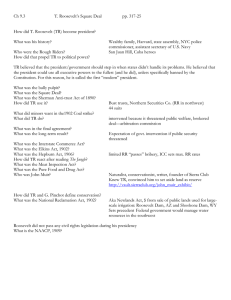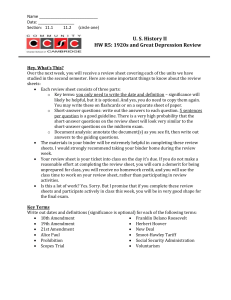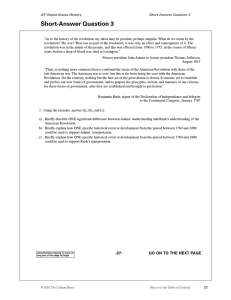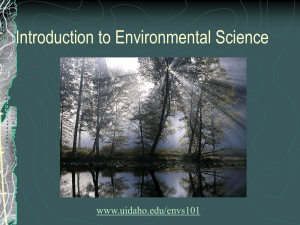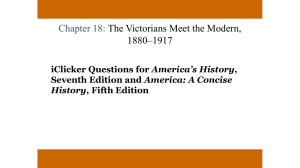Short Answer Question 2
advertisement
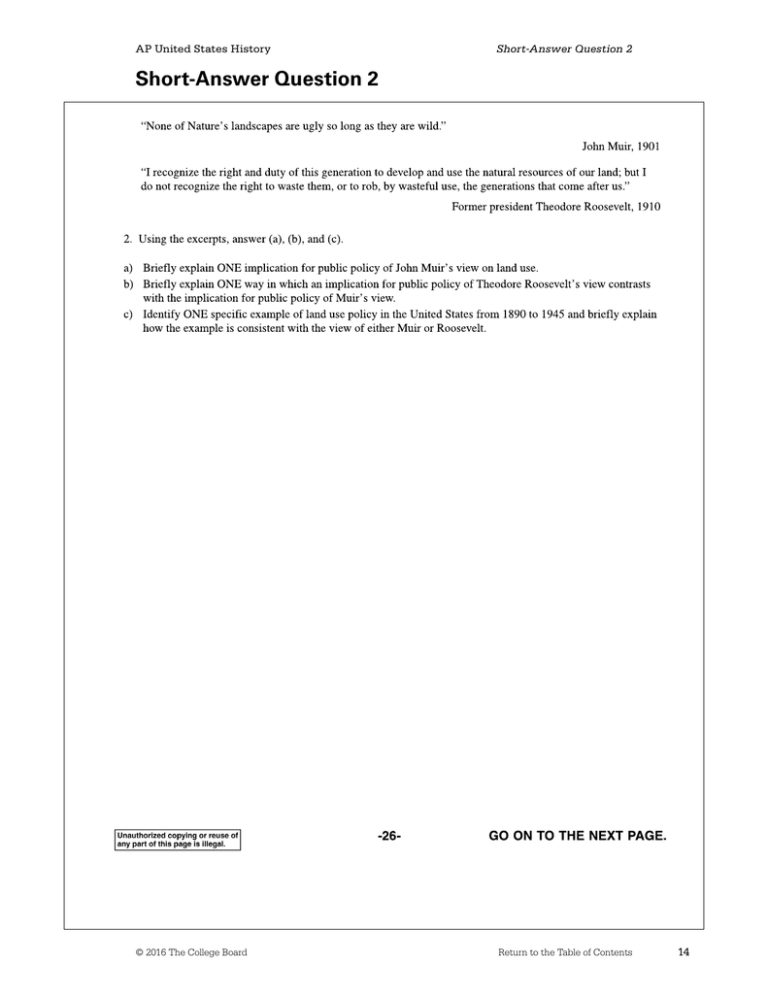
AP United States History Short-Answer Question 2 Short-Answer Question 2 © 2016 The College Board Return to the Table of Contents 14 AP United States History Short-Answer Question 2 Curriculum Framework Alignment and Scoring Guidelines Learning Objectives Historical Thinking Skills Key Concepts GEO-1.0 Explain how geographic and environmental factors shaped the development of various communities, and analyze how competition for and debates over natural resources have affected both interactions among different groups and the development of government policies. Contextualization 7.1 II © 2016 The College Board Return to the Table of Contents 15 AP United States History Short-Answer Question 2 © 2016 The College Board Return to the Table of Contents 16 AP United States History Short-Answer Question 2 © 2016 The College Board Return to the Table of Contents 17 AP United States History Short-Answer Question 2 Student Responses Sample SA-2A © 2016 The College Board Return to the Table of Contents 18 AP United States History Short-Answer Question 2 Sample SA-2B © 2016 The College Board Return to the Table of Contents 19 AP United States History Short-Answer Question 2 Sample SA-2C © 2016 The College Board Return to the Table of Contents 20 AP United States History Short-Answer Question 2 Scores and Commentary Note: Student samples are quoted verbatim and may contain grammatical errors. Overview Short-answer question 2 asks students to explain the differences between John Muir's and Teddy Roosevelt’s views and identify a way that one of their perspectives affected land use policy. Sample SA-2A Score: 3 a. 1 point: The response earns the point by explaining how Muir’s position would lead to a ban on economic activities on restricted land. b. 1 point: The response earns the point by contrasting Muir’s belief in leaving land untouched with Roosevelt’s willingness and ability to exploit protected lands and resources for economic reasons. c. 1 point: The response earns the point by identifying and correctly explaining how the foundation of the National Park Service reflected Roosevelt’s views. Sample SA-2B Score: 2 a. 1 point: The response earns the point for accurately explaining Muir’s intentions as a preservationist. b. 1 point: The response earns the point by offering clear distinctions between the approaches of Muir and Roosevelt; for example, explaining that Roosevelt’s more active view of land use implied government regulations. c. 0 points: The response does not earn the point because it fails to identify a specific example of land-use policy in the time period. The Clean Air and Clean Water Acts that are referenced fall well outside the time period 1890–1945. Sample SA-2C Score: 1 a. 0 points: The response does not earn the point since it misinterprets Muir’s approach as implying that land should be used for economic purposes. b. 0 points: The response does not earn the point for contrasting perspectives because it misunderstands Roosevelt’s perspective as meaning that the land should be “nice and presentable” and does not state Muir’s views at all. c. 1 point: The response earns the point for accurately referring to the 1891 conservationist Forest Reserve Act and explaining it as consistent with Roosevelt’s views. © 2016 The College Board Return to the Table of Contents 21
